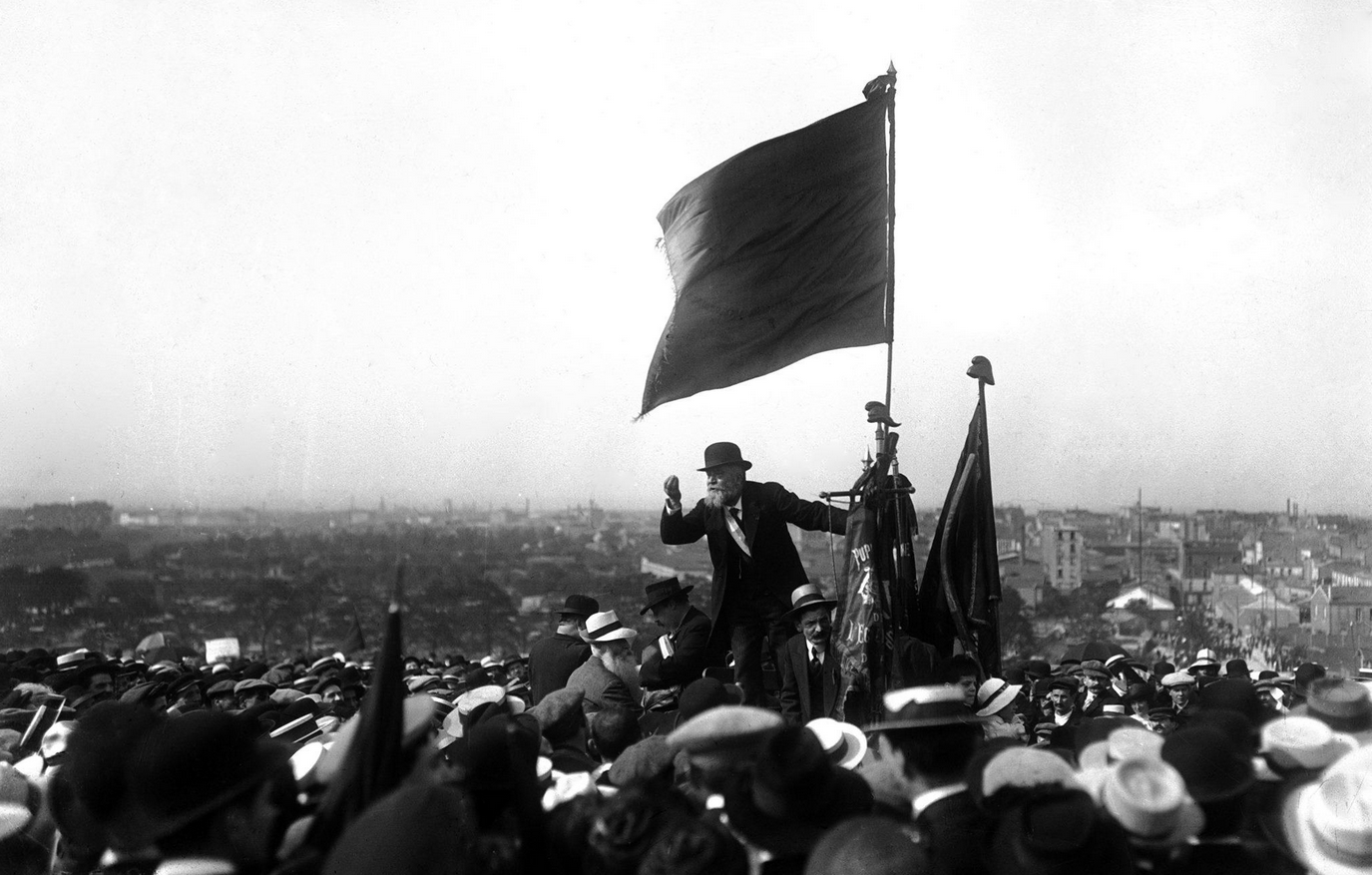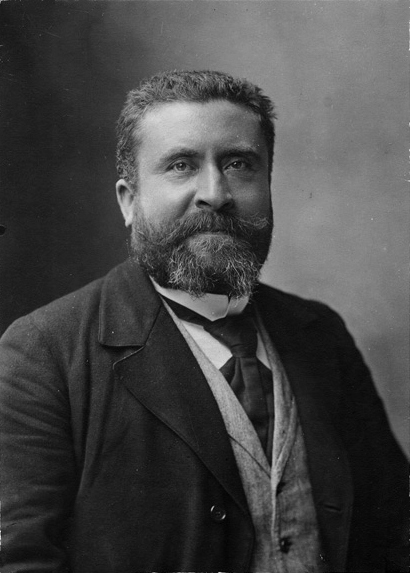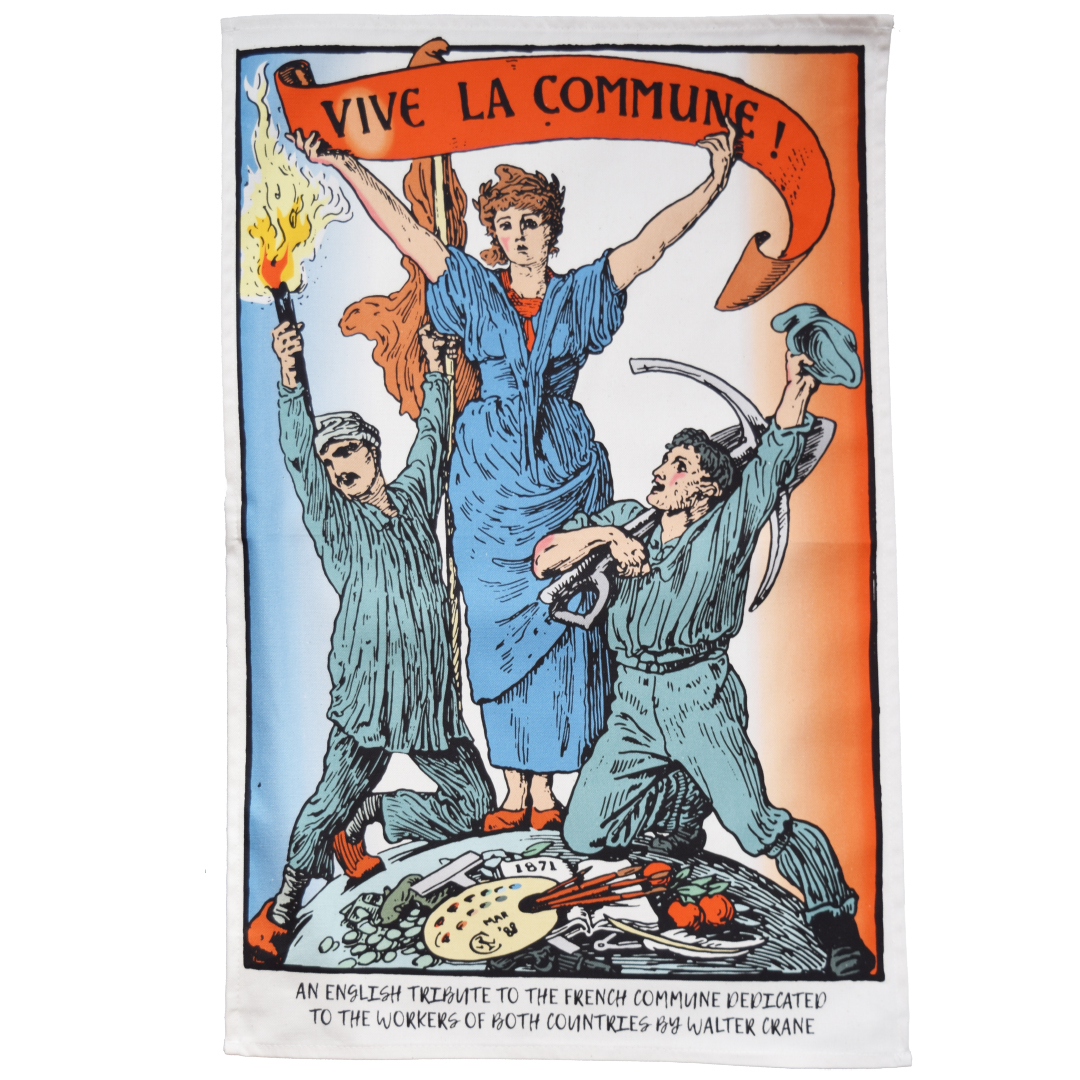Murder in Paris: The Assassination of Jean Jaurès
Posted by Pete on 9th Sep 2021

Born on 3rd September 1859, Jean Jaurès was the leader of the French Socialist Party
Jean Jaurès, killed on the 31st of July, 1914, was one of the very first fatalities of the Great War.
But Jaurès wasn’t a soldier: he was an anti-war activist, and one of the leading socialists in France.
The son of a farmer, Jaurès was from Castres in the south of France. After excelling at school and university, he became a philosophy lecturer in Toulouse.
Jaurès’ fate, however, was not in academic philosophy, but in the world of politics.
Jaurès would've been 12 years old when the socialist Paris Commune took over the city in 1871.
Click to view our Paris Commune tea towel
In 1885, he was elected as a Republican deputy to the French National Assembly for his home département of Tarn.
The French Republicans of the late-19th century were nothing like the US Republicans of today…
A Party spanning the centre to the centre-left, Jaurès was initially a moderate when he was elected.
But by the end of the 1880s, he had become an out-and-out Socialist.

A photograph of Jean Jaurès in 1904, ten years before his assassination.
The problem for the French Left was that there wasn’t one single socialist party. Marxism hadn’t yet developed a serious foothold in France, and the progressives were still divided amongst themselves.
Like in Britain, a collage of small groups and independents made up the landscape of French socialism.
Against this fractious backdrop, Jaurès agitated for the workers of France: for example, he backed the Carmaux miners whose union leader had been blacklisted.
Jaurès also made moves towards unifying and consolidating the French socialist movement – at a time when Keir Hardie was doing the same in Britain.
In 1902, Jaurès became leader of the new French Socialist Party, formed from the merger of his fellow independent socialists with a couple of the socialist parties.
The one remaining holdout was Jules Guesde’s revolutionary Socialist Party of France but even he joined with Jaurès in 1905 to create the Parti Socialiste Unifié.
As always, it had been hard work to bring socialist factions together, but Jaurès had done it.
Jaurès and Hardie were both trying to unify the Left in their countries and create a strong socialist political party.
Click to view our Keir Hardie tea towel
The newly united French Left was energised. During a visit to a wine-making cooperative in the south of France, Jaurès implored the growers:
“…in the vat of the Republic, prepare the wine of the Social Revolution!”
But then came the War.
Jaurès was a committed anti-militarist, especially since the Dreyfus Affair in the 1890s.
When the senior ranks of the military had launched an anti-Semitic campaign against a Jewish officer, Alfred Dreyfus, Jaurès was one of his most famous supporters, along with Émile Zola.
Jaurès henceforth saw the French Army as the centre of everything wrong with French society – racism, reaction, extreme nationalism, hatred of the labour movement.
So when the war drums started up in the summer of 1914, Jaurès gave his all to avert conflict.
He led condemnation of the French President’s military scheming with Tsarist Russia and held last-ditch meetings with German labour leaders to try to organise a general strike against the war in both nations.
It was for this anti-war activism that Jaurès was assassinated.
But who killed Jean Jaurès?
On 31 July 1914, at 21:40, the aptly surnamed Raoul Villain – a 29 year-old French nationalist – shot Jaurès at the Café du Croissant on the rue Montmartre.
Four days later, Germany and France went to war.
Jean Jaurès was not the last anti-militarist to be assassinated over the course of the 1910s. Rosa Luxemburg and Karl Liebknecht were similarly killed by German nationalists five years later.
All of these martyrs of the labour movement disprove the lie, spread at the time, that opposition to WWI came from a lack of courage.
By standing up to frenzied nationalism they put their lives on the line, and paid the ultimate sacrifice for a world without imperial wars.
Key years in Jean Jaurès's life
- 3 September 1859: Jean Jaurès born in Castres, Tarn
- 1881: Jaurès begins teaching philosophy in Toulouse
- 1885: Jaurès first elected to the National Assembly as a moderate Republican
- 1889: Jaurès, now standing as an independent socialist, fails to gain re-election
- 1892: Jaurès successfully campaigns for the reinstatement of a blacklisted union leader in the mines of Carmaux
- 1893: Jaurès re-elected to the National Assembly as a Socialist
- 1902: Jaurès helps merge various socialist groups to form the French Socialist Party
- 1904: Jaurès founds the socialist paper, L’Humanité
- 1905: A further merger of French socialist groups creates the Unified Socialist Party
- 28 June 1914: Archduke Franz Ferdinand assassinated in Sarajevo
- 31 July 1914: Jean Jaurès assassinated by Raoul Villain in Paris
- 3 August 1914: Germany declares war on France


